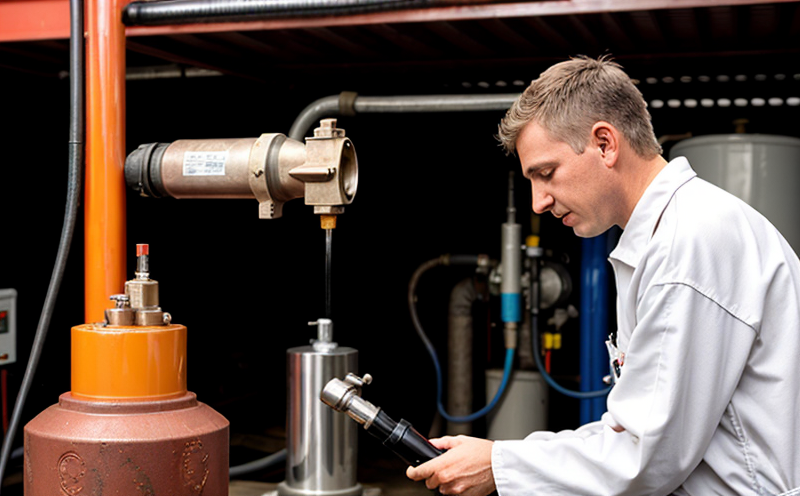ASTM D4294 Sulfur Content Testing of Aviation Fuels
Aerospace & Aviation Testing: Ensuring the safety and efficiency of aircraft operations is paramount in the aerospace sector. One critical aspect of this involves the thorough testing of aviation fuels to ensure they meet stringent quality standards.
The ASTM D4294 standard specifies a method for determining sulfur content in aviation fuels, which is crucial for preventing engine corrosion and ensuring fuel stability. This service plays an integral role in the quality assurance process, particularly for manufacturers, suppliers, and airlines.
The testing of sulfur content in aviation fuels using ASTM D4294 helps to:
- Ensure compliance with regulatory requirements such as FAR 36.15(a) (Federal Aviation Regulations).
- Prevent the formation of acidic byproducts that can damage engine components.
- Improve fuel efficiency and reduce emissions.
The process involves several key steps, including sample preparation, instrumental analysis, and interpretation of results. The testing method is designed to be precise and accurate, providing reliable data for decision-making processes within the aerospace industry.
Applied Standards:
| Standard | Description |
|---|---|
| ASTM D4294 | Makes use of infrared (IR) spectroscopy to measure sulfur content. |
| FAR 36.15(a) | Aeronautical engine fuel specifications and test methods. |
The ASTM D4294 method utilizes an infrared spectrometer, which is calibrated to detect sulfur compounds within the fuel sample. This instrument provides a direct measurement of sulfur content, ensuring that the results are accurate and repeatable.
Competitive Advantage and Market Impact:
By adhering to ASTM D4294 standards, organizations in the aerospace industry can gain several competitive advantages:
- Enhanced reliability of aircraft engines through reduced corrosion risks.
- Potential cost savings from improved fuel efficiency and reduced maintenance costs.
- Better reputation among customers who prioritize safety and environmental responsibility.
The ability to ensure compliance with such stringent standards can significantly impact market positioning, especially for companies looking to expand into international markets where regulatory requirements are strict.
Use Cases and Application Examples:
| Application | Description |
|---|---|
| Aircraft Engine Manufacturers | Ensure that the fuel used in aircraft engines meets all regulatory requirements and improves engine performance. |
| Airlines | Verify fuel quality before use to prevent issues during flight operations. |
| Fuel Suppliers | Guarantee compliance with international standards, thereby ensuring safe and efficient fuel distribution. |
Frequently Asked Questions:





